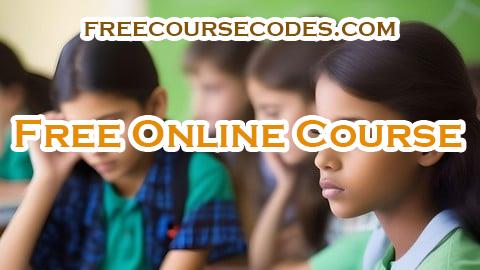
- Promoted by: Anonymous
- Platform: Udemy
- Category: Teacher Training
- Language: English
- Instructor: Dr. Dheeraj Mehrotra
- Duration: 1 hour(s)
- Student(s): 1,846
- Rate 2.5 Of 5 From 8 Votes
- Expired on December 06, 2024
-
Price:
19.990
Towards Learning Basics
Unlock your potential with a Free coupon code
for the "Understanding Behavioral Addictions among school children" course by Dr. Dheeraj Mehrotra on Udemy.
This course, boasting a 2.5-star rating from 8 reviews
and with 1,846 enrolled students, provides comprehensive training in Teacher Training.
Spanning approximately
1 hour(s)
, this course is delivered in English
and we updated the information on December 05, 2024.
To get your free access, find the coupon code at the end of this article. Happy learning!
Understand the concept of behavioral addictions and their impact on school children. This course aims to equip teachers, counsellors, and school administrators with the knowledge and tools to identify, understand, and address behavioural addictions among school children. It will cover various types of behavioral addictions, their causes, symptoms, and effective intervention strategies.
Course Objectives:
Understand the concept of behavioural addictions and their impact on school kids.
Identify different types of behavioural addictions commonly seen in children and adolescents.
Recognize the signs and symptoms of behavioral addictions.
Learn practical strategies for prevention and intervention.
Develop skills to support students struggling with behavioral addictions.
Introduction to Behavioral Addictions
Understanding Behavioral Addictions
Definition and overview
Difference between behavioral addictions and substance addictions
Common Types of Behavioral Addictions in School Kids
Internet and gaming addiction
Social media addiction
Gambling addiction
Shopping addiction
Food addiction
Causes of Behavioral Addictions
Psychological factors
Environmental factors
Genetic predisposition
Module 2: Identifying Signs and Symptoms
Changes in behavior and routine
Decreased academic performance
Social withdrawal
Physical and Emotional Symptoms
Stress and anxiety
Physical health issues (e.g., eye strain, sleep disturbances)
Observational strategies
Screening questionnaires
Psychological assessments
Module 3: Impact of Behavioral Addictions
Academic Impact
Decreased concentration and focus
Lower grades and academic achievement
Social and Emotional Impact
Strained relationships with peers and family
Increased risk of depression and anxiety
Long-term Consequences
Potential for lifelong addiction
Impact on career and personal life
Prevention Strategies
Creating Awareness
Educating students about the risks
Parental involvement and education
Promoting Healthy Alternatives
Encouraging extracurricular activities
Developing hobbies and interests
Building a Supportive School Environment
Anti-addiction policies and programs
Training teachers and staff
Intervention Techniques
Counseling and Therapy
Cognitive Behavioral Therapy (CBT)
Motivational Interviewing (MI)
Family therapy
School-based Support Programs
Peer support groups
Mentorship programs
Collaboration with Parents and Guardians
Effective communication strategies
Setting boundaries and monitoring usage
Supporting Recovery
Developing Resilience
Building self-esteem and confidence
Stress management techniques
Ongoing Monitoring and Support
Regular check-ins and follow-ups
Adjusting intervention strategies as needed
